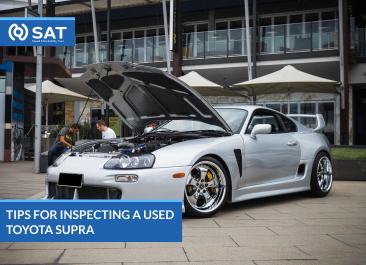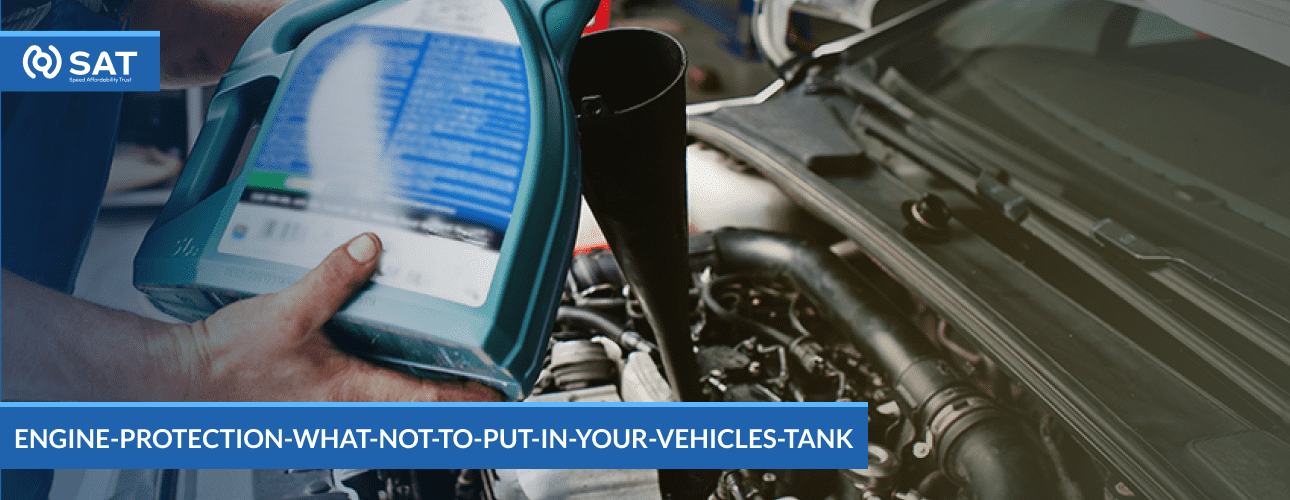No matter how advanced the automotive industry of the modern day is, you can still ruin your car’s engine. As a car owner, it is crucial for you to know the what to put in the gas tank to ruin The Engine. Knowing what not to put in your tank will help you ensure the safety of your car and protect you from costly repairs.
So, let’s find out what kind of liquids can ruin your vehicle.
What to Put in The Gas Tank To Ruin The Engine?
Putting anything other than gasoline in the gas tank can ruin your car engine. Liquids like water and any sort of sticky substance can clog the fuel filter.
Here are some substances that you should never put in your gas tank.
- Coke
- Water
- Bleach
- Salt
- Sugar
- Hydrogen Peroxide
How Can Coke Ruin Your Car Engine?
The first substance on the list of The Impact of Coke on your Car Engines – the infamous killer of the car motor. Generally speaking, any soft drink can lead to the destruction of your engine if you add a high enough amount. A drink such as coke will clog up the inside of your engine. The chemical composition of coke will mix with gasoline, turning the whole compartment into a caustic mess that can surely cause severe damage to the motor system.
What to Do if There is Coke in Your Gas Tank?
If you drive the car with coke inside, you will first have to go to a repair shop or a professional mechanic. They will check your vehicle and let you know the level of damage that has happened to your engine. Usually, resolving such issues is going to be costly.
The presence of coke in your car engine can be indicated by the fumes. The car emits a high number of fumes, allowing you to stop the vehicle and check the exhaust gas or fuel gas. If the engine oil seems fine, you should inspect the automobile engine components.
How Can Water Ruin Your Car Engine?
Water is second on the list of worst things to put in a gas tank. Pure water can, in fact, cause the death of all vehicles. Water Enters your Gas Tank can disable it from running fast.
When water is mixed with fuel, the engine is detached from the engine mount, and its efficiency is affected. If you keep driving without knowing, after some time, the car will start to alternate between smooth runs and stickiness and will eventually shut down in the middle. Even a few drops of water can cause enough damage to your car engine. Therefore, it is important to be aware of the signs.
How to Tell if There is Water in The Gas Tank?
Some of the symptoms that you need to look out for include:
Rough Idle
It is an easy way to tell if the gas tank has water.
Rough Acceleration
Rough acceleration is the common sign of having water in your gas tank.
Misfires
You can detect water presence through miss fire. The water goes into the combustion chamber of the cylinder, and your car misfires.
Engine Light
You can check the engine light to see if there is water in the gas tank.
What to Do if There is Water Your Gas Tank?
Displacement
It is the best method to remove water as it will remove the old gas and replace it with high-octane fuel as fast as possible.
Replacing the Gas
Replacing the gas is also an effective and easy solution, but it is not cheap as it wastes fuel.
Professional Assistance
The best way to determine the problem and get it fixed is to consult a professional. Your mechanic will tell you the best solution for water in the gas tank.
How Can Bleach in the Gas Tank Ruin Your Car Engine?
Driving a vehicle with bleach in it can lead to great danger. If the bleach stays in the fuel system or engine part for a long time, it can corrode the metal. Bleach contains water and chlorine that can destroy the engine. So, Bleach Can Destroy Your Car Engine is something that should be avoided at all costs when it comes to substances to put in your car’s engine.
What to Do if There is Bleach in Your Gas Tank?
A simple solution to prevent the bleach from causing more damage to the engine is to flush the tank and apply a biofuel additive. This material will absorb the bleach and will clean your gas tank.
How Can Salt Ruin Your Car Engine?
Once mixed with the car’s gasoline, salt corrodes the bottom of the fuel tank. The salt crystals sip into the fuel pump, clogging the filter and paralyzing the entire engine.
Even though a Dangers of Salt in your Gas Tank will not do as much damage as other substances, it can still cause a massive power engine loss if it is sustained long inside the car.
What to Do if there is Salt in Your gas tank?
If there is salt in your gas tank, it is advised to clean your fuel tank. Drain all the fuel from your gas tank, replace the fuel filter, and change the fuel pump. You can also get assistance from a professional to get the job done.
How Can Sugar Ruin a Car Engine?
Now, for those who want to know what happens when you Adding Sugar to your Fuel System, a small quantity of sugar in the gas tank can render the engine inoperable. Though you can clear a minor quantity of sugar, a high amount can destroy the machine, and you might need to replace the machinery.
This is because the sugar does not dissolve in the gasoline; instead, the granules of sugar float in the tank as the gas is added. They clog up your fuel filter and spread it all over the bottom. As a result, the gasoline faces difficulty in reaching the engine and propelling the vehicle. Furthermore, if sugar grains collect in one location of the car, that can cause more damage.
Sugar normally collects in three locations: the gas pump, the gasoline injector, and the gasoline filter.
How to Tell if There Is Sugar in the Gas Tank?
Keep these symptoms in mind:
- Stalled engine
- Difficulty in getting the car started
- Low-quality engine performance
What to Do if there is Sugar in Your Gas Tank?
If sugar gets into your vehicle, the best thing you can do is clean the following components:
- Fuel tank
- Fuel filter
- Fuel pipe
You can ask your technician to clean and fix these components to ensure no sugar residue remains. If the sugar blockage is hardened, the technicians might need to replace the engine.
Hydrogen Peroxide
It is the most dangerous liquid to pour into your vehicle’s gas tank. Not only can this liquid cause substantial damage to your engine, but it can also ignite the engine and cause the vehicle to explode. Hydrogen peroxide is added to the car’s gas tank to improve the speed and power of the vehicle. However, it becomes highly hazardous when it comes into contact with gasoline.
When hydrogen peroxide is combined with gas, the gasoline burns and supplies fuel faster than it usually does on its own. However, your engine can only bear the speed and power to a certain limit before it wrecks completely.
If there is a small amount of hydrogen peroxide in your car’s tank, you can repair it. However, if a significant amount of hydrogen peroxide enters the car’s gas tank, you will have to replace the vehicle.
How to Tell if There is Hydrogen Peroxide in the Gas
Tank?
The easiest way to determine if the Effects of Hydrogen Peroxide in your gas tank is to look inside. This material is heavier than gasoline and sinks to the tank’s bottom. Moreover, its subtle blue hue makes it even easier to recognize. If you notice even a tiny amount of hydrogen peroxide in your tank, take your vehicle to the mechanic.
Final Thoughts
The above points clear the query of “how to ruin a car engine.” As a car owner, it is essential for you to be aware of what you should never put inside your vehicle. Any liquid, such as food items or hazardous material, can wreck your engine.
If you stick to the usual gasoline for your gas tank, your engine will stay clean for many years. Anyone who handles cars should be careful of materials that can be highly flammable and cause serious threats if not handled properly.
Therefore, keep toxic materials out of your gas tank. By staying alert at SAT Japan and staying cautious you can save money and protect your vehicle from heavy damage.








